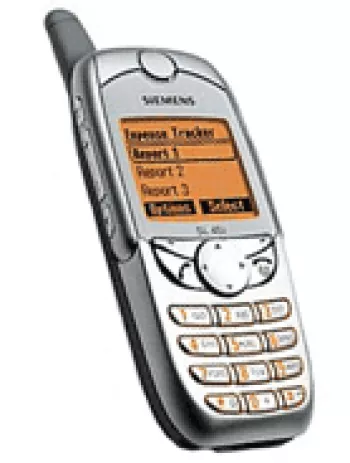
Overview of Siemens CC75
The Siemens CC75 is a feature phone that was announced in August 2005 but was ultimately cancelled before its official release. Despite this, the device captured attention with its minimalist design and functionality targeted towards simplicity and efficiency in an era characterized by rapid technological advancements.
Design and Build
The Siemens CC75 showcases a sleek, compact design with dimensions of 111 x 44 x 12.6 mm, accounting for a volume of 65 cc. Weighing just 80 g, it was considered lightweight for its time. The handset was crafted to fit comfortably in the hand, emphasizing portability and ease of use.
The phone's exterior featured an Aluminium Silver color, adding a premium finish to its appearance. Its build quality and finishing were representative of Siemens' focus on delivering durable and aesthetically pleasing devices.
Display
The CC75 came equipped with a TFT display supporting up to 65K colors. While the size of the display is not specifically documented, its resolution stood at 128 x 160 pixels. This was typical for feature phones of that era, offering basic readability for calling and messaging without the complex display demands of smartphones.
Connectivity
Siemens CC75 supported GSM technology, making it compatible with 2G bands such as GSM 900, 1800, and 1900. While lacking advanced connectivity options of later smartphones, it included GPRS Class 10, allowing for basic data services suitable for browsing and messaging.
Short-range communication options were limited, with no Bluetooth or WLAN support, but it did feature an Infrared port for exchanging data with compatible devices. Proprietary USB connections were available for physical data transfers.
Memory and Storage
Internally, the Siemens CC75 housed 3MB of storage capacity. Although this is minuscule by today's standards, it was sufficient for storing essential applications, contacts, and small quantities of media at the time. The absence of a card slot meant the memory could not be expanded, necessitating careful management of available space.
The device supported a phonebook and could log 10 dialed, 10 received, and 10 missed calls, serving basic communication needs effectively.
Sound and Alerts
In terms of audio, the CC75 did not include a loudspeaker or a 3.5mm headphone jack, reflecting its focus on core functionalities rather than multimedia. Alert notifications could be customized with vibration and downloadable polyphonic ringtones, catering to personal preferences.
Battery Life
The phone was powered by a removable Li-Ion 800 mAh battery (EBA-720). Battery performance metrics were respectable, offering up to 270 hours of standby time and up to 3 hours and 30 minutes of talk time. This was considered adequate for maintaining communication without frequent recharging.
Software and Features
Running on a feature phone operating system, the Siemens CC75 was optimized for essential communication functions rather than extensive software applications. It supported SMS and MMS messaging, enabling both text and multimedia exchanges.
For entertainment, it offered basic games, with the possibility of downloading additional ones. However, Java support was not available, limiting the range of downloadable applications.
The built-in browser supported WAP 2.0/xHTML for browsing, facilitating access to mobile websites adapted to 2G speeds.
Cancellation and Legacy
Despite being a promising addition to the Siemens lineup, the CC75 was ultimately cancelled before reaching the market. Details on the reasons behind this decision remain limited, but it underscores the competitive and fast-evolving nature of the mobile phone industry at the time.
Though never commercially released, the Siemens CC75 exemplified the company's design philosophy and its approach to balancing simplicity with functionality in mobile communication devices.
Key Features of Siemens CC75
- GSM Technology with support for 900/1800/1900 bands
- Compact and lightweight design (111 x 44 x 12.6 mm, 80 g)
- TFT display with 65K colors and resolution of 128 x 160 pixels
- Internal memory of 3MB for storing contacts and call records
- Supports SMS and MMS messaging
- WAP 2.0/xHTML browser for internet access
- Downloadable games
- Infrared port for connectivity
- Removable Li-Ion 800 mAh battery with up to 270 hours standby time
Drawbacks of Siemens CC75
- No EDGE support for faster data transfer.
- The launch of the device was cancelled.
- Lack of expandable memory with no card slot available.
- Minimal internal memory of only 3MB.
- No camera feature included.
- No loudspeaker functionality.
- Absence of a 3.5mm headphone jack.
- No wireless connectivity options such as WLAN and Bluetooth.
- No built-in GPS positioning capability.
- No radio feature available.
- Proprietary USB instead of a standard one.
- Limited Java application support.


View Also
More Phones
All Rights Reserved +14266 Phones © Mobilawy 2025

























